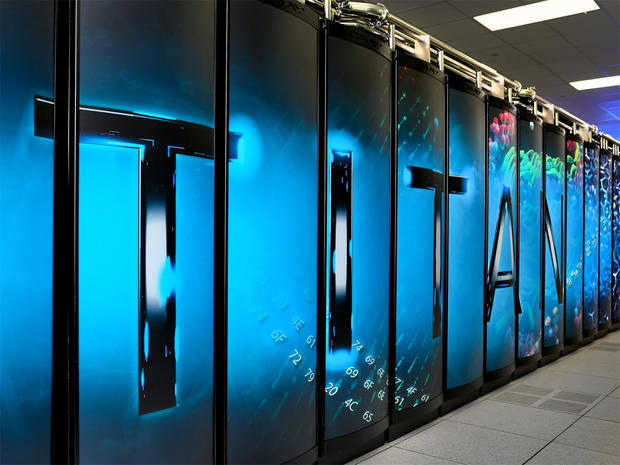DOE activates Titan, world's fastest supercomputer
The Department of Energy has flipped the switch on what is now the world's most powerful supercomputer.
The DOE's Oak Ridge National Laboratory facility announced on Monday that its new Titan system is now live. The supercomputer can handle 20,000 trillion calculations a second, which in computing language is referred to as 20 petaflops. ORNL says that makes Titan 10 times more powerful than the laboratory's Jaguar supercomputer, once the fastest machine in the world and now the sixth.
Titan will likely unseat the DOE's Sequoia supercomputer, based on an IBM design, that is currently the world record holder.
Titan gets its speed from a family of processors called graphic processing units, which were first developed for computer gaming, combined with traditional central processing units. An ORNL press release describes the computer, based on the Cray XK7 system:
The Cray XK7 system contains 18,688 nodes, with each holding a 16-core AMD Opteron 6274 processor and an NVIDIA Tesla K20 graphics processing unit (GPU) accelerator. Titan also has more than 700 terabytes of memory. The combination of central processing units, the traditional foundation of high-performance computers, and more recent GPUs will allow Titan to occupy the same space as its Jaguar predecessor while using only marginally more electricity.
The supercomputer will support research in energy, climate change, efficient engines and materials science.
James Hack, direction of ORNL's computational sciences center, said Titan will let scientists simulate physical systems more realistically and in greater detail.
